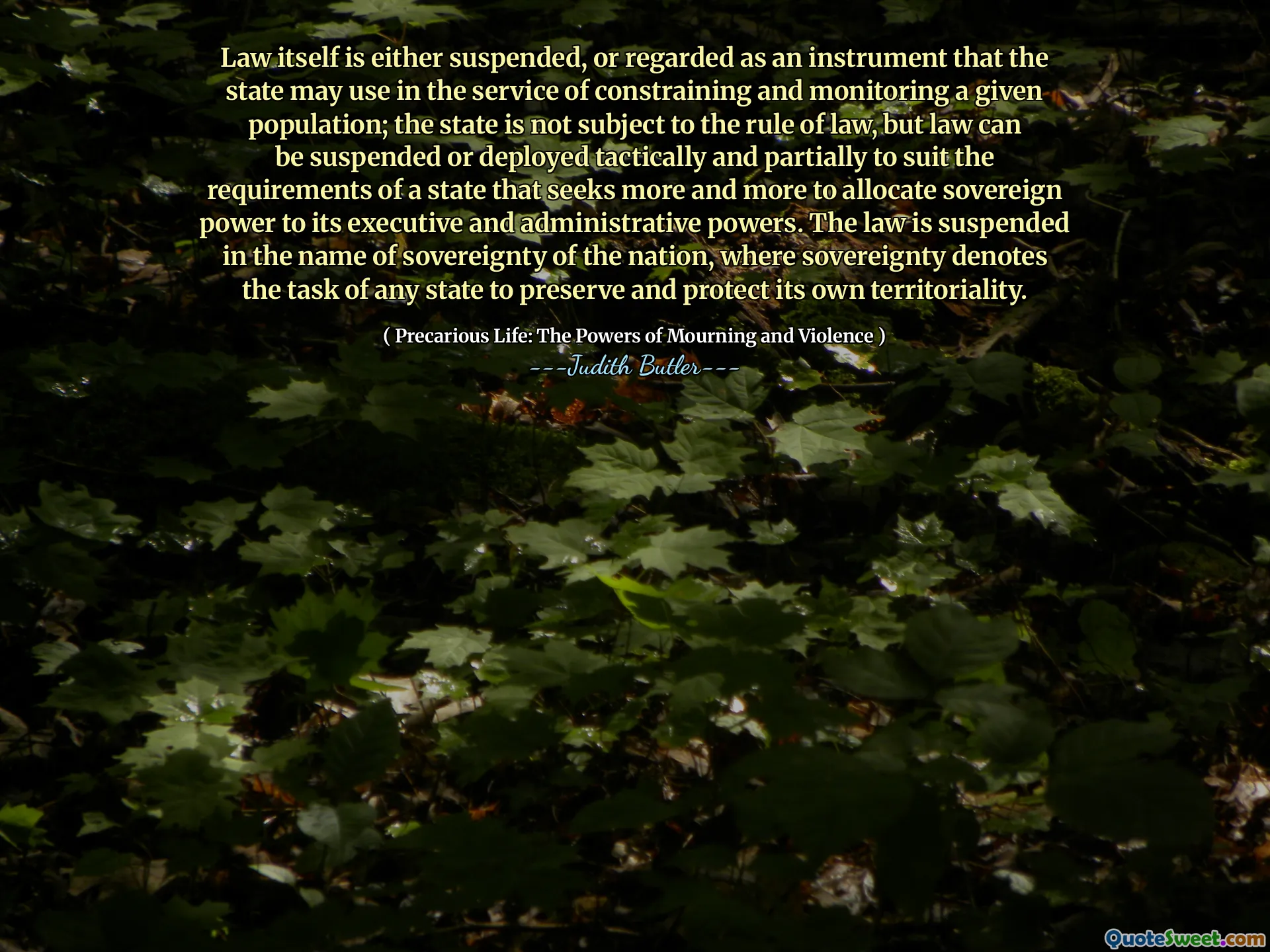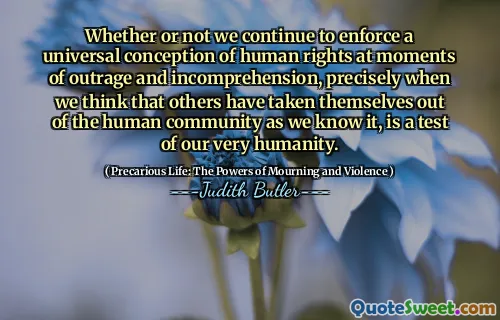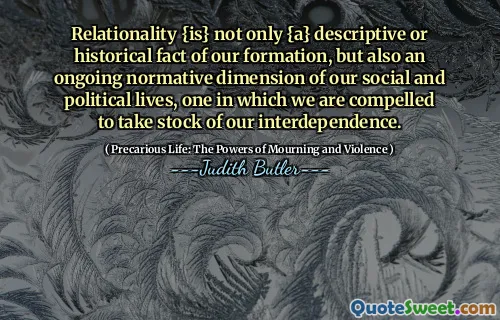
Law itself is either suspended, or regarded as an instrument that the state may use in the service of constraining and monitoring a given population; the state is not subject to the rule of law, but law can be suspended or deployed tactically and partially to suit the requirements of a state that seeks more and more to allocate sovereign power to its executive and administrative powers. The law is suspended in the name of sovereignty of the nation, where sovereignty denotes the task of any state to preserve and protect its own territoriality.
In Judith Butler's "Precarious Life," the author discusses the complex relationship between law and state power. She argues that law is not always an impartial set of rules; instead, it can be temporarily suspended or manipulated by the state to control and surveil its population. This suggests that the state often operates outside the bounds of legal constraints, utilizing the law as a tool to further its objectives while exerting its authority.
Butler highlights that the notion of national sovereignty plays a crucial role in this dynamic. The state justifies the suspension of law in the name of protecting its territorial integrity and preserving its power. Consequently, the law becomes a selective instrument used by the state to enforce its will rather than a uniform mechanism of justice, raising concerns about the implications for individual rights and the rule of law in society.











